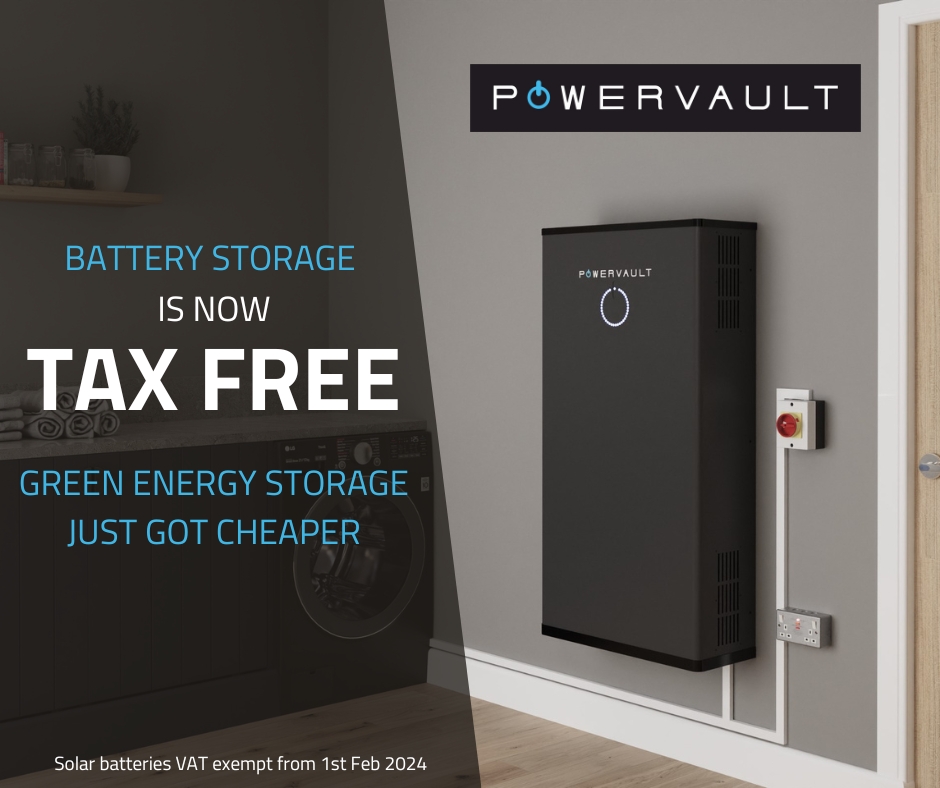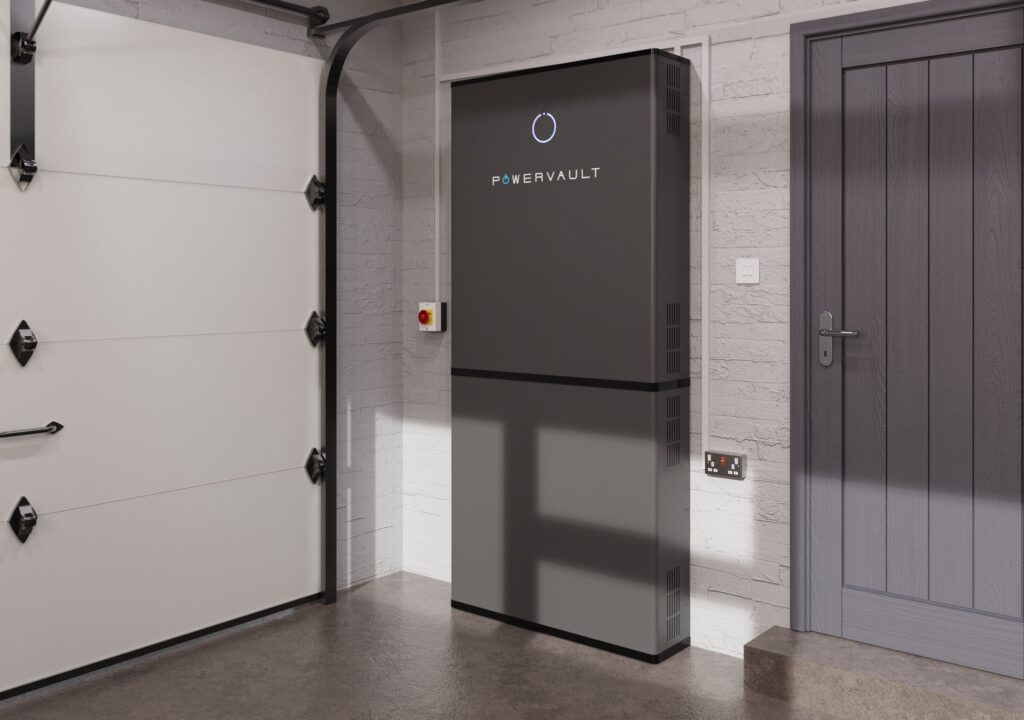
News articlePowervault Celebrates Government Decision to Extend VAT Exemption to Retrofitted Battery Energy Storage Systems
Energy storage now VAT-free
In a groundbreaking development, the UK government has officially granted retrofitted Battery Energy Storage Systems (BESS) an exemption from the 20% VAT, effective from 1 February 2024. This is great news for the millions of homeowners in the UK who already have solar panels installed and will now be able to dramatically increase their solar savings by retrofitting solar battery technology, now with 0% VAT on their investment.
Powervault's leadership
Operating as a leader in the UK energy storage market since 2014, Powervault started their campaign to reduce VAT on energy storage systems in 2020, meeting with the energy minister and engaging with BEIS, DESNZ and the Treasury officials. Joe Warren, CEO of Powervault, said: “It never made sense to us that customers who chose to be part of the solution, by installing solar batteries alongside their solar panels, should pay a higher rate of VAT than if they simply continued to consume fossil-fuel powered electricity from the grid. Battery energy storage benefits not only homeowners but so many different industry stakeholders. Of course, we should install renewable generation like solar panels, but it is only with a battery that the evening winter peak can be reduced, which benefits the local and national grid, and all UK consumers who will pay less for expensive peak time generation and benefit from increased energy security and lower carbon emissions.”
Background
Since the Spring Statement in 2022, the government had initially excluded energy-saving domestic equipment, such as heat pumps and roof-mounted solar, from VAT. BESS was also included in this exemption, but only when installed in conjunction with other energy-saving materials like solar panels. This imbalance in the tax regulations did not make sense, and Powervault continued to campaign alongside other industry organisations including Solar Energy UK and the Renewable Energy Association to rectify ever since.
Breaking the news on 11 December, the government declared that retrofitted BESS would now stand independently exempt from VAT. This significant achievement is the result of tireless efforts by industry stakeholders, with Powervault proud to play a pivotal role in the campaign alongside partners such as the Association for Renewable Energy & Clean Technology (REA) and Solar Energy UK. Notably, this demand was not addressed in the initial Battery Strategy outlined in the Autumn Statement on 26 November.

Industry response
In response to a consultation initiated in the 2022 Spring Statement to broaden the scope of VAT relief on energy-saving materials, the government stated:
“The government agrees with respondents that this technology meets all of the stated objectives for this VAT relief in its own right, and will therefore bring electrical battery storage within the scope of the relief. This means that the technology will now also qualify for VAT relief when either retrofitted to qualifying energy-saving materials or installed as a standalone technology connected to the grid.”
Dr. Nina Skorupska CBE, Chief Executive of the REA, commended the extension, stating that it finally aligns battery storage with other energy-saving materials. She emphasized that this rectifies a long-standing inequality in tax treatment and urged the government to extend the VAT exemption to include thermal storage and electric vehicle (EV) chargepoints.
Powervault CEO Joe Warren talked about Powervault’s role in the campaign, stating, “This decision is fantastic news and a great example of the industry working together. Powervault is proud to have played a proactive role in this campaign and we are very grateful for the Renewable Energy Association and others for taking up this cause and working with us to secure this key outcome. Installing a battery energy storage system can dramatically increase the savings from a home solar installation, reduce carbon emissions, support the grid at peak times, reduce infrastructure investment and increase energy security for the UK. The UK as a whole benefits as a result of the support to essential “green jobs” and by creating a good environment in which UK technology companies can flourish and ultimately generate export revenues. Most importantly, customers want to be part of the solution, and it’s our mission to help them wherever we can.”
Read more...Recent News
Energy insight in your inbox
Subscribe to Powervault’s email newsletter and be the first to hear about new products, plus get all the latest news, analysis and insight from Powervault.


